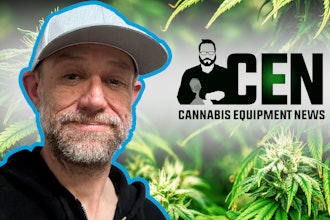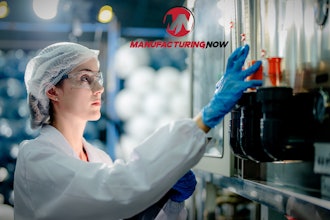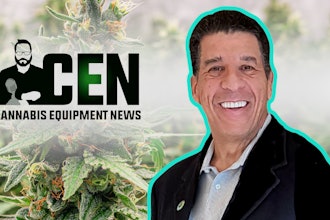Editor's Note: Download the audio version below and click here to subscribe to our newsletter.
Programming note: This episode was recorded the day before Thanksgiving. We obviously know that it is after Thanksgiving.
This week, Ric Schumacher, President and CEO of Pressure BioSciences, discusses how his work making precise pressure instruments could play a big role in creating cannabinoid products that are not only more-accurately dosed, but more bioavailable (that means your body actually absorbs more).
A scientist by nature, Schumacher started as a Harvard researcher and has gone on to found four different biotech companies. For many years, he worked in the HIV/Hepatitis field, developing products that would not only improve testing, but make it possible (and reliable).
Pressure BioSciences is a much different company than anything Schumacher has ever run. Working with some elite physicists and engineers, Schumacher has developed a new product that can expose material to pressures from 1,000 pounds per square inch (PSI) to 45,000 pounds per square inch. Note: If you travel to the deepest part of the ocean, the Mariana Trench, you only experience 17,000 PSI. Pressure BioSciences have even developed an instrument that can reliably reach 100,000 PSI.
Schumacher believes in the power of pressure and using this amazing gift from mother nature to make cannabinoids (CBD, CBN, CBG & THC) easier for the body to absorb and water soluble.
The company’s patented Ultra Shear Technology (UST) can produce high quality, water-soluble nanoemulsions. Using pressure, UST creates intense, instantaneous liquid shear to generate ultrafine dispersions of nanoemulsified oil. Basically, it makes the oil so small that it can be reliably infused into beverages, cosmetics, nutraceuticals, pharmaceuticals and other products.
According to Schumacher, nanoemulsions protect the visual and nutritional qualities
of the material being processed and require lower amounts of added chemicals for preservation. The technology can also destroy spoilage organisms and potentially harmful pathogens, including mold.
UST is a three-year old platform and it began with a $1 million grant to partner with Ohio State University and find a way to manufacture milk that was commercially sterile and shelf-stable at room temperature. The big challenge wasn’t to make it last for six months without spoiling, but to try and make sure that it still tasted like milk.
While Schumacher was focused on dairy, he was approached by a cannabis industry professional who looked as UST and mentioned that it could be used to make CBD. At the time, Schumacher didn’t even know what CBD was.
While CBD and other cannabinoids can have beneficial effects, it comes out of the plant as an oil and human bodies don't absorb oil well -- only five to ten percent of the oil is bioavailable.
To crack the bioavailability code, Schumacher breaks the oil down to the nanoscale, under 200 nm to create nanoemulsions.
To describe it, Schumacher compares it to raspberry vinaigrette dressing. When you use the dressing to sweeten your salad, you have to vigorously shake the dressing and pour it immediately to make sure that you experience all of the flavors. After UST, the vinaigrette would come out as one solution and never separate out.
Now, Schumacher and his brilliant team of scientists and engineers are preparing to launch Pressure BioSciences’ first generation instrument, the BaroShear K45 System. The K45 uses the UST platform to effectively produce high quality, water-soluble nanoemulsions of CBD oil.
While the company has experienced delays due to pandemic-related supply chain problems, it’s preparing to manufacture 15 K45s in 2021.
The K45 is a mid-range instrument, processing a maximum of 5 ml/sec at the max target pressure of 45,000 PSI. The initial K45 will cost around $200,000. However, the technology is scalable, and the company has plans to create a smaller benchtop instrument that can process about 1 ml per minute and larger scale machines that can move up to 2 liters per minute.
For manufacturers, the upside is that nanoemulsions are far more bio-accessible. Theoretically, that means that current products could use much less CBD or THC and still have the same effect. According to Schumacher, oil manufacturers should be able to get multiples higher of the compounds.
The industry must get to a point where recipes and effectiveness are far more controlled. If 85% of the oil is being excreted from the body, it’s simply too much waste.
While Schumacher hopes that Pressure BioSciences will be the company that oil and other product manufacturers choose to work with, either way, the industry needs to move forward with nanoemulsion products.






















